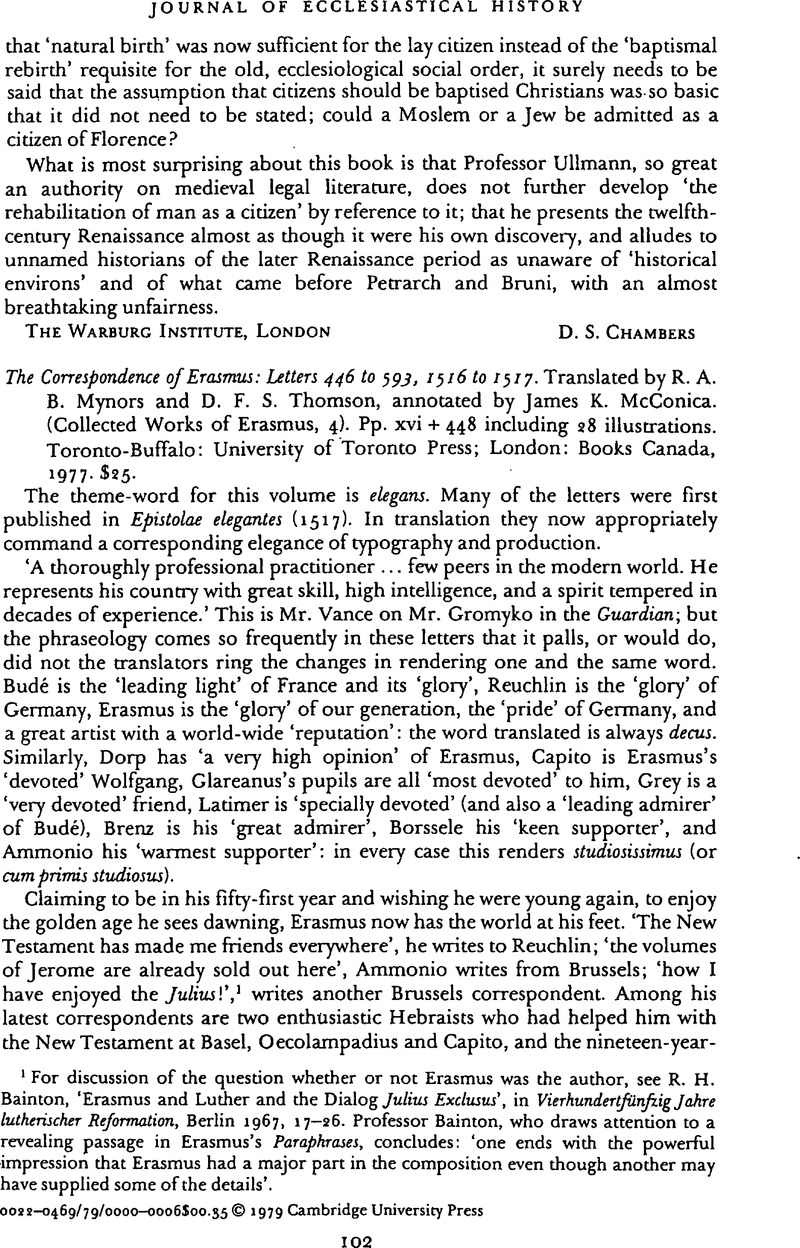No CrossRef data available.
Article contents
The Correspondence of Erasmus: Letters 446 to 593, 1516 to 1517. Translated by R. A. B. Mynors and D. F. S. Thomson, annotated by James K. McConica. (Collected Works of Erasmus, 4). Pp. xvi + 448 including 28 illustrations. Toronto-Buffalo: University of Toronto Press; London: Books Canada, 1977. $25.
Published online by Cambridge University Press: 25 March 2011
Abstract

- Type
- Reviews
- Information
- Copyright
- Copyright © Cambridge University Press 1979
References
1 For discussion of the question whether or not Erasmus was the author, see Bainton, R. H., ‘Erasmus and Luther and the Dialog Julius Exdusus’, in Vierhundertfünfzig Jahre lutherischer Reformation, Berlin 1967, 17–26Google Scholar. Professor Bainton, who draws attention to a revealing passage in Erasmus's Paraphrases, concludes: ‘one ends with the powerful impression that Erasmus had a major part in the composition even though another may have supplied some of the details’.
2 Following Allen, the editors avoid the scribe's numerous depravations of the Hebrew by giving it as in Capito's Hebraicae institutiones (1518). Its printing here, though not faultless, reaches a standard almost as splendid as that of the volume as a whole.
3 The form, rendered by Jerome, following LXX and Matthew i. 23, as future tense (‘will conceive’), and stated by Erasmus to be present tense, would be past tense, as Capito says, if it were the verb, but is sensibly taken by modern lexicographers to be die adjective (‘is pregnant’: N.E.B.).
4 While Christi philosophia is Erasmian (Erasmus uses the phrase in another letter), Christum sapere here is perhaps more devout, recalling sapere in the Vulgate {=ψρονέοχ




